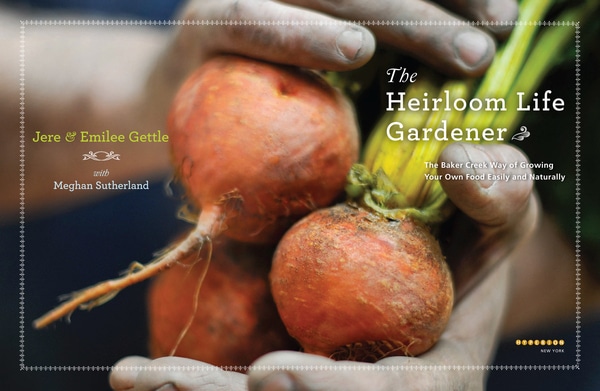Updated: November 13, 2020
One of the main points in The Heirloom Life Gardener is that vegetable gardeners don’t comprehend the true value of seeds. Why? It’s because seeds are way too easy to get.
For a few bucks today you can hop in the car and pick up a package at Walmart. Hell, you can even get organic seeds at Walmart.
But our predecessors understood how really valuable seeds are.
Consider the story of Jack and the Beanstalk. When the fairytale was created, people understood the power of seeds.
Related: How to Get Free Seeds from the U.S. Government
Back then, having the right seeds for the right environment could be the difference between living the good life and famine. Whole civilizations depended on their seeds.
Let’s take a sec to get the legal words out of the way. This article may contain affiliate links. That means if you click and buy from my partners, I will make a tiny amount of money at no cost to you. This in no way affects my recommendations.
The really cool thing about seeds is that through “unnatural” selection each generation can become better and more adapted to your specific environment.

A seed’s genetic memory allows gardeners and farmers to:
- improve flavor
- reduce the time to ripening,
- reduce the amount of water needed
- reduce the amount of fertility needed
- raise or lower the required temperature
- improve shelf time
- improve many other things
When you can do all this, a beanstalk that grows to the clouds is only a small stretch of the imagination. Seeds can truly be magical.
Unfortunately, in some parts of the world, we’ve forgotten how magical they can be.
A lifelong love of seeds
The Heirloom Life Gardener* co-author Jere Gettle has made it his life’s work to remind us of the magic of seeds.
Since his earliest days, Gettle has had a deep passion for growing food.
It’s the seeds that have made his crops possible.
As a successful seed company entrepreneur, you could consider him a “poster child” for the idea that if you chose to make a living from what you love, success will follow.
Jere Gettle introduces readers to a treasure trove of information built up over his lifetime.
— Suburban Hobby Farmer
He and his wife Emilee Gettle started the heirloom seed company Baker Creek. Their book The Heirloom Life Gardener teaches us how to grow truly amazing foods that transcend the standard fare found in our neighbors’ plots.
Jere, a homesteader before the homesteading movement became popular, has traveled the world searching for seeds. He has made it his life’s work to gather seeds from the most unique and tasty fruit and vegetable varieties.
In this book, he introduces readers to the treasure trove of information built up over his lifelong love affair with seeds and gardening.
Growing, nurturing and cooking
Starting alphabetically with amaranth and ending with watermelon, the Gettles cover growing, nurturing and cooking an extraordinary list of varieties.
Some are so different from their grocery store counterparts that the reader will surely feel they came from outer space.
What I really found interesting was (1) the little bits of history that the authors interjected about certain fruits and vegetables and (2) the directions for saving seeds.
Clearly the Gettles have transferred their true love of growing flavorful, exotic and beautiful fruits and vegetables into this guide.
As you might expect from purveyors of open pollinated seeds, the Gettles make no effort to hide their disdain of genetically engineered varieties, even pointing out potentially harmful health effects.
One of my few criticisms about this book is the repetitiveness in the section called the A to Z growing guide.
Most plants benefit from some basic growing practices and the authors seem to point this out over and over.
An area where I respectfully disagree with the Gettles is their suggestion to use railroad ties as the walls for raised beds.
I believe that most ties, if not all, are treated with harmful substances to stop them from breaking down over time.
As a result. they can leech unhealthy materials into the soil.
Still, both master gardeners and novices (and everyone in between) will enjoy The Heirloom Life Gardener.
Related articles you might enjoy:
- Book Review: Carol Deppe’s The Resilient Gardener
- Book Review: Felder Rushing’s Slow Gardening
- Book Review: The Apple Grower
Suburban Hobby Farmer is a participant in the Amazon Services LLC Associates Program, an affiliate advertising program designed to provide a means for sites to earn advertising fees by advertising and linking to amazon.com.